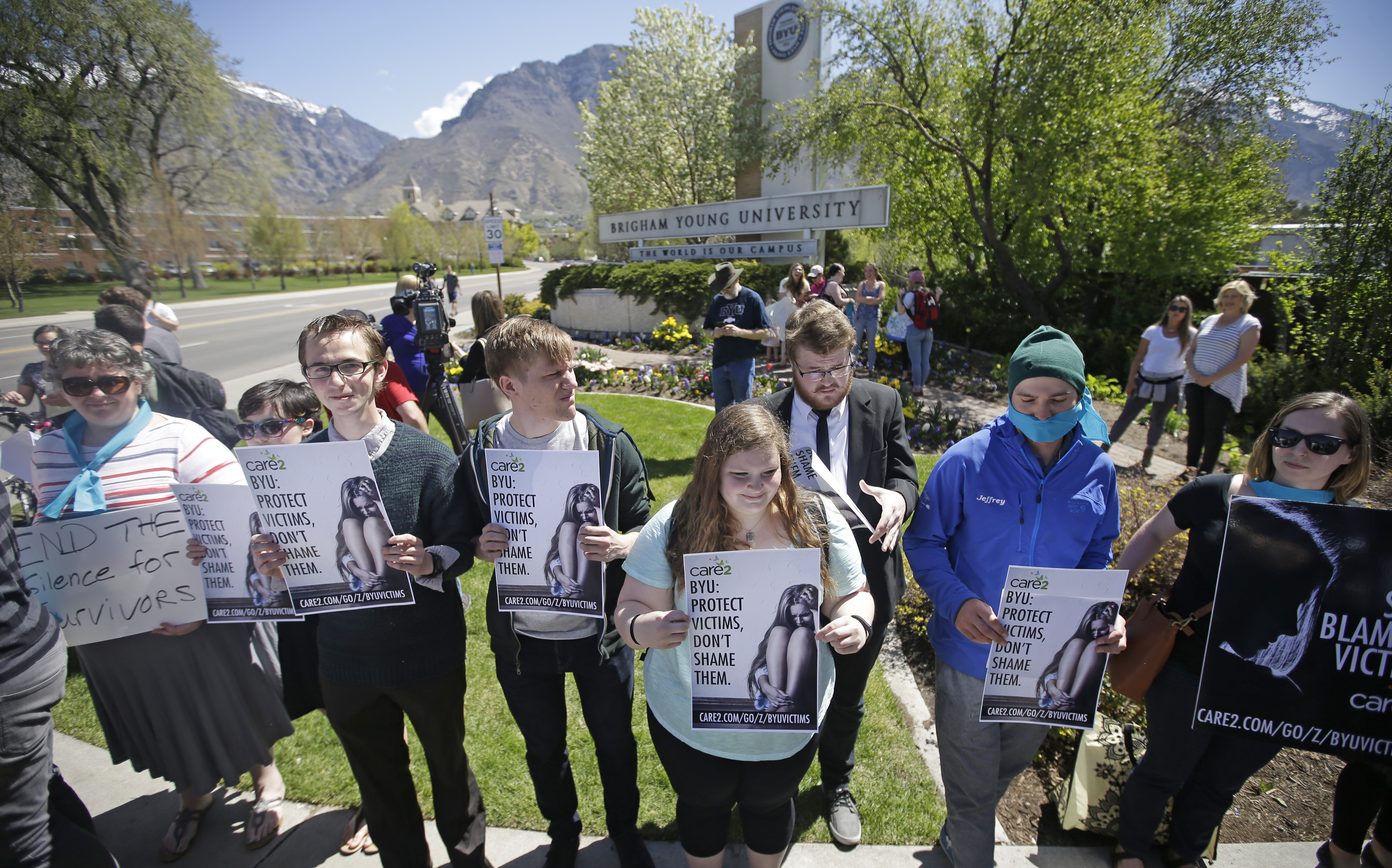
BYU announced Wednesday it has made additions to its sexual misconduct policy following the recommendations of the Advisory Council on Campus Response to Sexual Assault.
The advisory council made 23 recommendations, including an amnesty clause for sexual assault victims and a new physical space for the Title IX office that is separate from the Honor Code office. The university is adopting all 23 recommendations explained in the council’s full report.
“Our top priority is the safety and well-being of our students,” BYU President Kevin J Worthen said in a letter to the BYU community on Oct. 26.
The Student, Faculty and Administrative Advisory Councils will review the amnesty clause before it becomes official policy, but the university will operate according to the amnesty guidelines in the advisory council’s report in the meantime.
During Fall Semester 2016, BYU will also:
- Create a full-time Title IX coordinator position to replace the current part-time position.
- Create a position for a confidential victim advocate.
- Create a physical location for the Title IX Office that is separate from the Honor Code Office.
- Ensure the Title IX Office doesn’t share information about sexual assault victims with the Honor Code Office without victims’ consent, unless the health or safety of others is at risk.
Some of the other recommendations include sharing the council’s findings about ecclesiastical leaders’ responses to sexual assault reports with officials from The Church of Jesus Christ of Latter-day Saints, strengthening BYU’s relationship with community resource providers and publicizing a campaign about resources for victims of sexual assault.
“We have an obligation not only to provide that support, both emotionally and spiritually, but also to create an environment where sexual assault is eliminated.” President Worthen said in the letter.
Worthen created the advisory council in May 2016 in response to complaints about the university’s handling of sexual assault.
The council included Janet S. Scharman, a licensed psychologist and BYU’s student life vice president; Ben Ogles, a licensed psychologist, psychology professor and dean of BYU’s College of Family, Home, and Social Sciences; Sandra Rogers, a nursing professor and BYU’s international vice president and Julie Valentine, a nursing professor whose research specialty is sexual assault.
The council spent hundreds of hours doing research, talking to sexual assault victims and speaking with victim resources outside the university.




